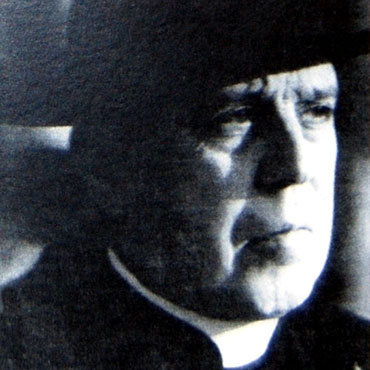Carusi, the son of a notary, was born at Pollutri, in the province of Chieti, in 1878. After undertaking his ecclesiastical studies, he attended the episcopal seminary in Chieti and subsequently the Collegio Nazareno in Rome, where he took his vows. In 1901 he graduated in literature at the University of Rome, where he had been a student of the historian Giovanni Monticolo and of the philologist and palaeographer Ernesto Monaci. After a brief spell teaching in Chieti, he was given the task of cataloguing the Vaticani latini collection of manuscripts at the Biblioteca Apostolica Vaticana.
This was the beginning of a career that would lead him to his role as permanent writer for the Vatican, under the guidance of Franz Ehrle, a real bastion in the studies of philology and in first-hand work on the sources. As well as the catalogues of the Vatican manuscripts, Carusi also published texts, letters and documents, making use of the expertise he had acquired during his university education in the fields of history and philology. His work on palaeography and diplomatics resulted in co-operation with intellectuals at the European level, including those without connections to the Vatican, such as Wallace Martin Lindsay.
In 1919 he became a member of the Da Vinci Commission, which he considered as relevant to his life as a scholar as the Vatican Library was. The work of transcribing and annotating the facsimiles of Leonardo’s papers, for which he was one of the main authors, resulted in his producing many contributions to the history and tradition of those manuscripts. He also collaborated on the Leonardo da Vinci entry in the Enciclopedia italiana, together with Giuseppe Favaro, Giovanni Gentile, Roberto Marcolongo and Adolfo Venturi. With Antonio Favaro he published the Del moto e misura dell’acqua, writings found in the Barberiniano latino manuscript 4332, which Favaro would never see in print, as it did not appear until 1923.
Carusi’s learned interest in the unpublished manuscript, which went beyond his interest in its contents, led him also to venture into the local history of its place of origin and to his organising an important conference on Abruzzo and Molise that was held in Rome in 1931. Enrico Carusi died in the Vatican City in 1945, sitting at his desk while he was working.


